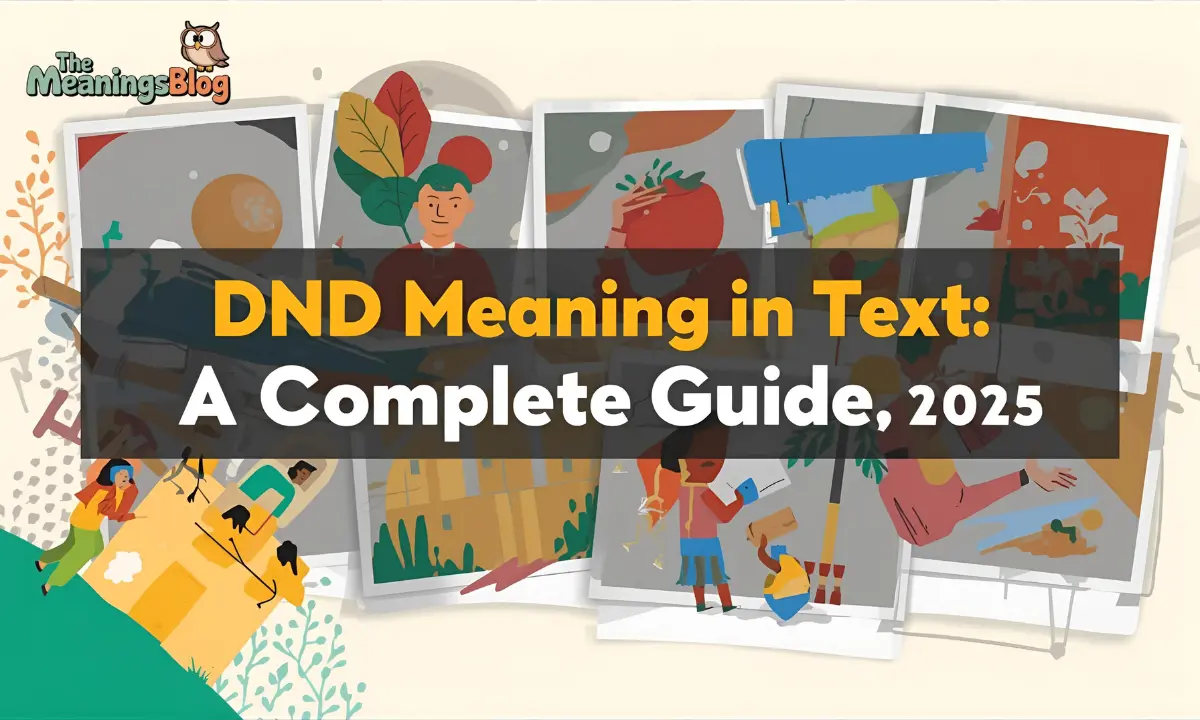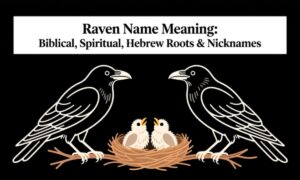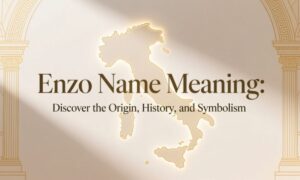In today’s fast world of texting and online chats, short forms make communication quick and easy. One such popular term is DND Meaning in Text, which many people use daily. It helps express when someone does not want to be disturbed. This simple acronym has become a part of everyday digital language.
Understanding DND Meaning in Text is important in modern communication. It shows respect for someone’s time and space. Whether used in casual chats or professional settings, it sends a clear message of unavailability. Knowing its correct use helps avoid confusion and keeps conversations smooth.
Definition & Meaning
What Does DND Stand For?
The acronym DND has two primary meanings in digital communication and online slang:
- Do Not Disturb: Signals unavailability or need for privacy
- Dungeons & Dragons: References the popular tabletop RPG game
- Context determines meaning: Always check surrounding conversation clues
Importance of Context
Communication context plays a crucial role in understanding this phrase disambiguation:
- Texting shorthand usually indicates someone needs uninterrupted time
- Gaming abbreviation typically refers to the fantasy role-playing game
- Professional communication often means temporary unavailability or a status message
Understanding context clues prevents confusion in messaging. Different platforms use DND for different purposes. Always consider the conversation setting before interpreting.
Background & History
Origins of DND
DND emerged during early mobile phone usage. People needed quick ways to communicate status. Pagers popularized short, unavailable message formats clearly. The term became standard in chat culture.
As texting etiquette developed through the years, abbreviations became more acceptable in digital communication. Do Not Disturb is naturally shortened to DND format. This workplace chat shorthand saved time efficiently.
Rise of DND in the Digital Age
Smartphones introduced dedicated mobile notification mode settings. Users could silence calls and alerts instantly. The DND feature became universally recognized quickly. Social media messaging platforms adopted the terminology.
Meanwhile, Dungeons & Dragons has grown since the 1970s. The tabletop RPG developed a massive following. Gamers shortened the name to DND online. Both meanings coexist in modern messaging norms.
Usage in Various Contexts
Texting & Social Media
DND frequently appears in casual conversations across platforms. People use it to establish polite boundary setting.
Example 1: “In a meeting right now, DND for an hour.”
Example 2: “DND mode activated – studying for my finals tonight.”
Example 3: “Can’t talk, DND until dinner time. Text later?”
Example 4: “Sorry, DND while I’m working on this project deadline.”
This texting slang helps people communicate boundaries clearly without lengthy explanations. Using DND status on social media prevents interruptions during important tasks. It’s become a standard way to signal temporary unavailability respectfully.
Gaming
In gaming communities, DND typically references the iconic game. Players use this term in their everyday conversations.
Example 1: “Playing DND with friends tonight – can’t wait!”
Example 2: “Looking for a DND group to join this weekend.”
Example 3: “Just bought new DND dice for our campaign.”
Example 4: “Our DND session went until 2 AM last night!”
The difference between DND and AFK in gaming matters significantly for understanding. While AFK means temporarily away from the keyboard, DND references the game itself. Context makes the distinction clear every single time consistently.
Professional Settings
Workplace chat applications commonly feature DND status options. Professionals use it to manage interruptions effectively.
Example 1: “DND until 3 PM working on quarterly report.”
Example 2: “Set to DND during client calls message later.”
Example 3: “DND mode on, focusing on project deadline today.”
Example 4: “Please respect DND status, urgent matters only please.”
Can DND be used professionally in workplace chat environments? Absolutely, when applied appropriately with clear communication expectations.
Is saying DND rude in chat situations professionally? Not when paired with brief explanations or timeframes. Using DND meaning in professional emails requires careful consideration, though.
Common Misconceptions & Clarifications
Misunderstanding DND
Many people assume DND always means gaming. This misconception leads to confusion in conversations. Context determines the actual intended meaning always.
The Dungeons & Dragons acronym dominates gaming forums. However, most everyday texting uses Do Not Disturb. Understanding slang alternatives helps clarify the distinction.
Perception of Rudeness
Some view using DND as dismissive behavior. This perception stems from a misunderstanding texting etiquette. Actually, it’s a respectful communication method.
DND meaning texting slang 2025, emphasizes boundary setting. It allows people to focus without guilt. Proper usage demonstrates consideration for your time.
Read More: HB Meaning Slang
Similar Terms & Alternatives
Here are common chat abbreviations with similar purposes:
Each term serves the specific communication context needs effectively.
| Term | Meaning | Best Context |
| DND | Do Not Disturb / Dungeons & Dragons | General texting, Gaming forums |
| BRB | Be Right Back | Casual chats, Brief absences |
| AFK | Away From Keyboard | Gaming, Work settings |
| GTG | Got To Go | Quick departures, Casual messaging |
| TTYL | Talk To You Later | Friendly conversations, Sign-offs |
These slang terms in texting expand communication. Learning multiple abbreviations improves digital communication skills. Choose the most appropriate term carefully.
How to Respond to This Term
Casual Response
When someone uses DND in a friendly conversation:
- “No problem! Message me whenever you’re free to chat.”
- “Sounds good – I’ll catch you later then!”
- “Totally understand, talk to you soon!”
Funny Response
Add humor while respecting their boundaries:
- “DND? Fine, I’ll just train carrier pigeons instead!”
- “Okay, sending all urgent messages via smoke signals!”
- “Got it – I’ll telepathically beam you updates!”
Professional Response
Maintain workplace chat professionalism in your reply:
- “Understood completely. I’ll follow up after 3 PM.”
- “Thank you for letting me know. Connecting later works.”
- “Noted – reaching out once you’re available again.”
Regional or Cultural Differences
DND is widely understood across English-speaking countries globally. The acronym meaning remains consistent in most regions. However, non-English speakers may use local equivalent phrases.
In Spanish-speaking areas, “No Molestar” serves similar purposes. French speakers might use “Ne Pas Déranger” instead. These variations maintain the same core communication intent.
Understanding these differences improves cross-cultural digital communication significantly. What does DND mean in text messaging varies slightly internationally. The core concept of temporary unavailability remains universal, though.
Usage in Online Communities & Dating Apps
On dating platforms like Tinder, DND appears humorously:
- “DND unless you’re bringing tacos or good jokes!”
- “Status: DND except for dog photos or travel tips.”
In gaming forums, the contextual meaning of DND abbreviation shifts:
- “Seeking DND players in Chicago – new campaign starting!”
- “DND group meeting Tuesday nights – beginners welcome always!”
These examples show how DND vs Do Not Disturb vs Dungeons & Dragons mean different things. Platform culture determines interpretation naturally. Always read the surrounding context carefully before responding.
Hidden or Offensive Meanings
Generally, DND carries no offensive connotations in messaging. However, tone and delivery significantly impact perception. Using it abruptly without explanation may seem dismissive.
To avoid misunderstanding slang, add brief context always:
- “DND for the next hour, important call coming.”
- “Setting DND while finishing this report – back soon!”
This approach maintains polite boundary setting while preventing confusion. How to respond when someone says DND depends heavily on their explanation clarity.
Also Read: MK Meaning In Text
Suitability for Professional Communication
While DND works for informal workplace chat perfectly, formal emails require different approaches. Instead of simply writing “DND,” provide a complete context clearly.
- Less Professional: “DND until 3 PM.”
- More Professional: “I’m currently unavailable until 3 PM for meetings. I’ll respond to messages after that time.”
DND meaning in professional emails should always include timeframes. This demonstrates respect for colleagues’ time and needs. Proper texting etiquette applies even in workplace settings.
Frequently Asked Questions
What is the DND Meaning in Text?
DND Meaning in Text refers to Do Not Disturb, refers to a person being busy or unavailable to chat.
How do you use DND in a message?
You can write “DND right now” to tell others you need quiet time or focus.
What does DND mean on a phone?
It means the phone’s notifications are silenced, so you won’t get calls or alerts.
Is DND rude to say in chat?
No, it’s a polite way to let people know you’re not available at the moment.
What is the full form of DND in texting?
The full form of DND in texting is Do Not Disturb.
Can I use DND in professional messages?
Yes, you can use it in casual work chats to show you’re focused or in a meeting.
What is the DND Meaning in Text for gamers?
For gamers, DND can also mean Dungeons and Dragons, a famous role-playing game.
Conclusion
The term DND Meaning in Text, has become common in today’s digital conversations. It helps people express their need for privacy or focus simply. Whether chatting with friends or working online, this word keeps communication clear. It shows respect for time and space between people.
Understanding DND Meaning in Text makes texting easier and more polite. It avoids confusion and helps build better online habits. This small word carries a big meaning in modern life. Using it wisely keeps your messages clear and respectful in every situation.

Noah shares deep insights into meanings, metaphors, celebrity and Net Worth, inspiring readers with wisdom and reflection. His passion is uncovering hidden truths that bring clarity, inspiration, and spiritual growth to everyday life.








